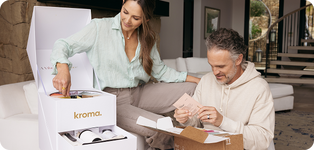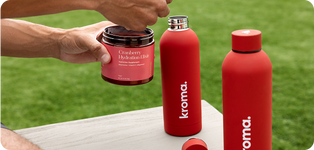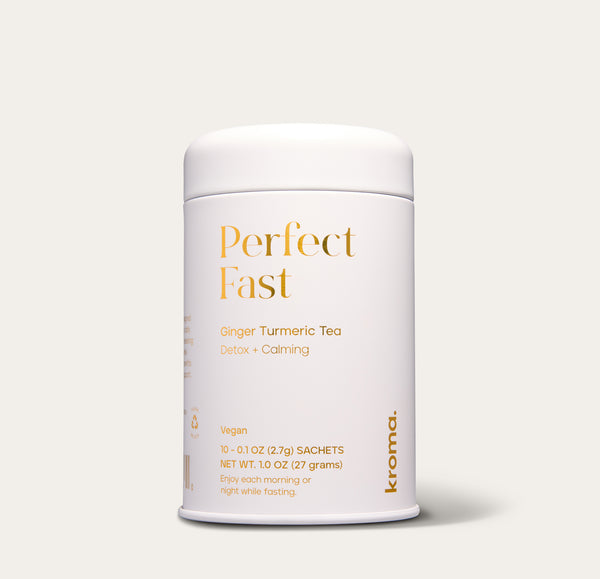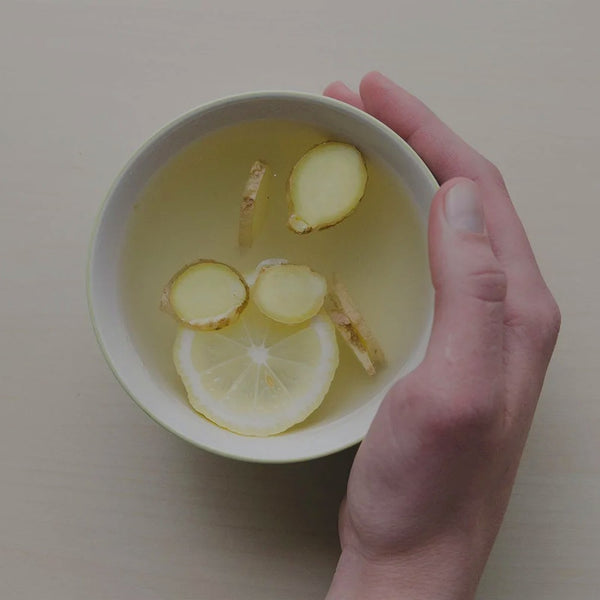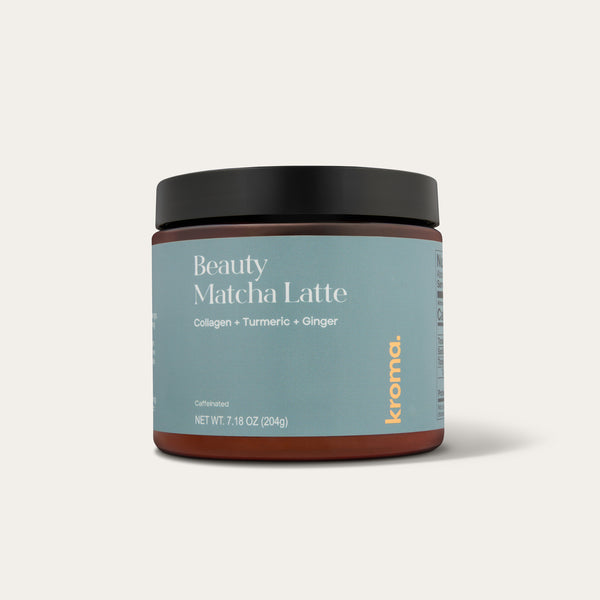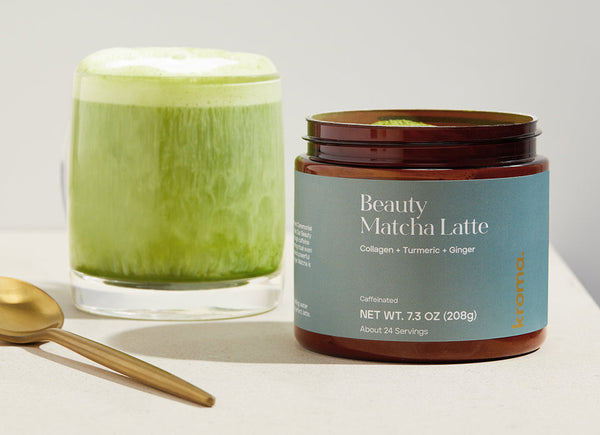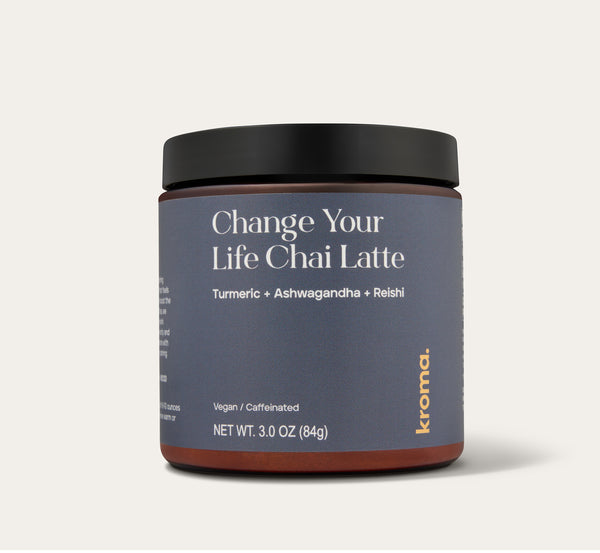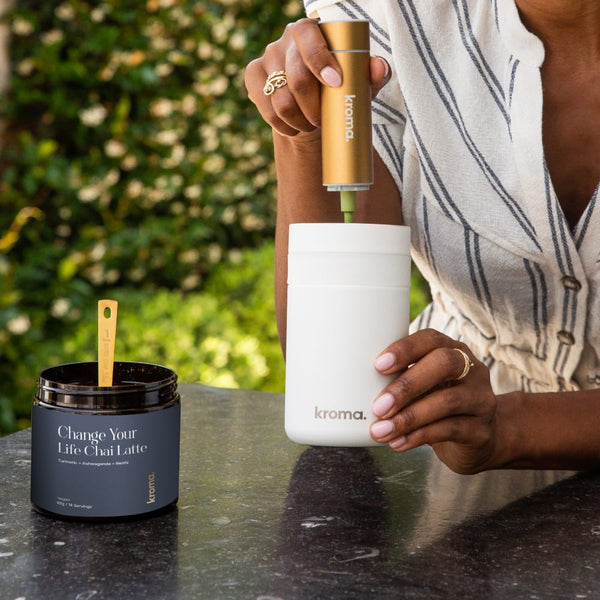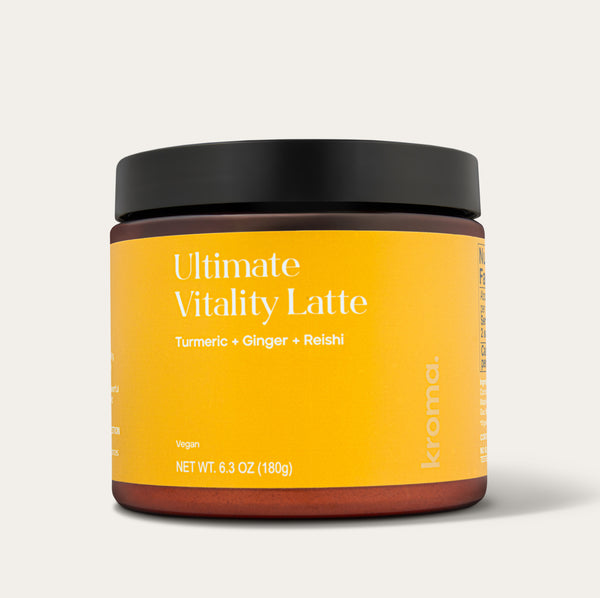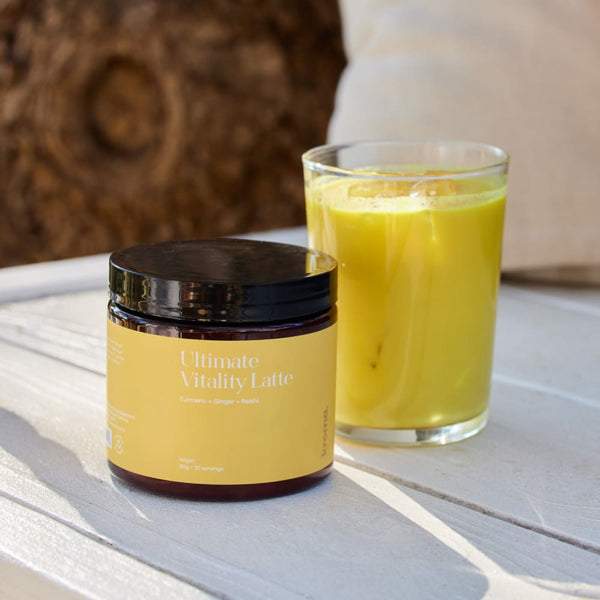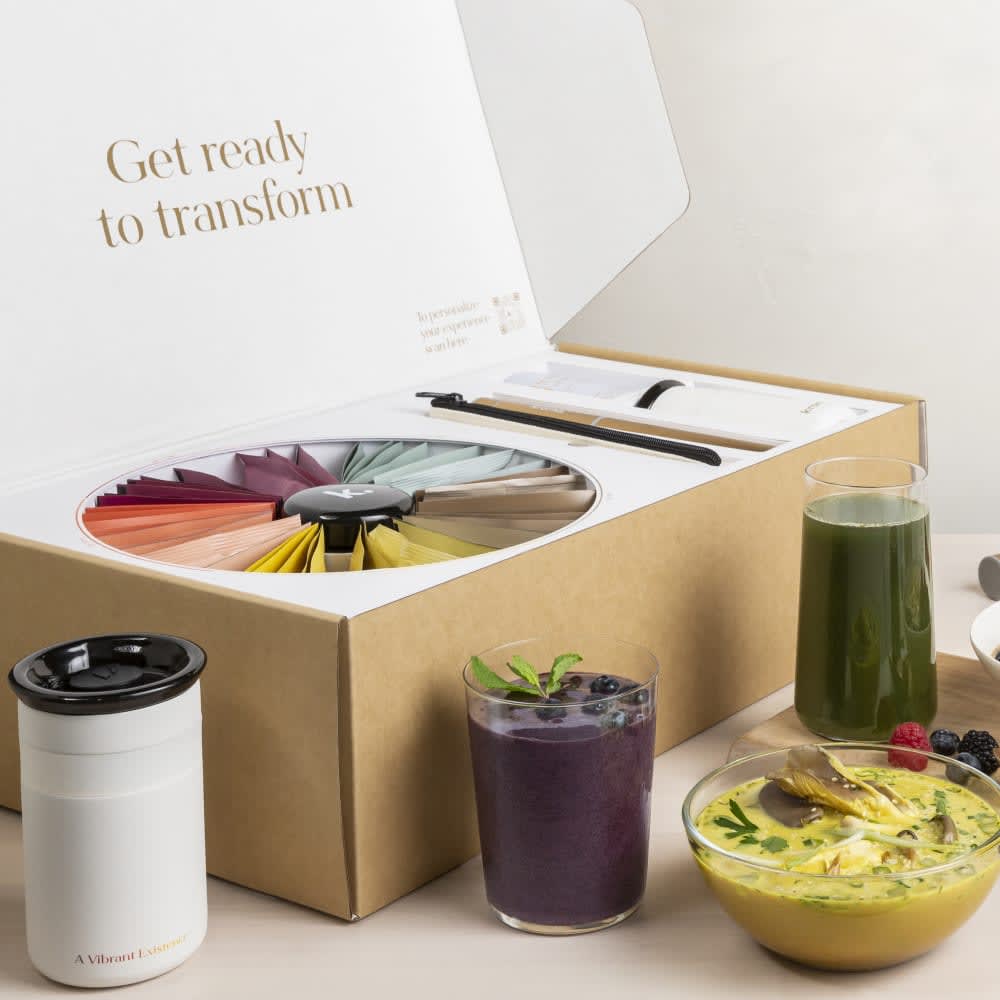The quick answer is yes, you can drink coffee while fasting, as long as it’s black coffee.
But there is so much more to learn about drinking coffee while fasting, so we’ve answered all your questions in this article.
Keep reading as Kroma Wellness explains how coffee affects fasting and the pros and cons of drinking coffee. You will also learn some tips on preventing any negative side effects coffee may have while you fast.
Does Coffee Break a Fast?
The benefits of intermittent fasting are abundant. However, to get the most out of your fasting window, it is important to be mindful of what you can consume without breaking your fast.
Whether coffee breaks your fast depends on how you take your brew. If you prefer a splash of coffee in your heavily sweetened latte, yes, it will break your fast.
However, if you drink black coffee, your fast will stay intact. If you want a simple way to enjoy a delicious beverage without worrying about whether it will break your fast, you can try our Perfect Fast Tea with organic turmeric, ginger, cinnamon, and orange peel to soothe your appetite and support your energy.
Does Coffee Have Calories?
Generally, when fasting, you want to consume zero calories. By cutting your calories, you are essentially changing the way your body pulls energy for fat burning benefits. Instead of utilizing the glucose stored in your liver, your body will switch to using ketones stored in fat cells.
This switch may encourage weight loss, but there are also many health benefits such as supporting heart health, healthy metabolic function, and brain health.
Black coffee has less than five calories per cup, so it’s safe for your fast. As long as you are not adding anything with calories, sugary artificial sweeteners, or creamers to your cup, you can enjoy your morning coffee without breaking your fast.
Can I Drink Coffee with Milk While Fasting?
Unfortunately, any milk you consume will add additional calories, signaling your food-sensing pathways to turn on and, you guessed it, break the fast.
Almond milk, cow’s milk, coconut milk, and oat milk will all add fast-breaking calories, and may even cause your blood glucose levels to spike. A splash of cream may seem harmless, but your body will be able to take those calories and use them as energy, stopping you from going into ketosis or staying in ketosis.
Ketosis is when your body starts using those ketones as energy, which is crucial if you are fasting for weight loss. Ketosis can help you burn unwanted fat, and if you break your fast by adding milk to your coffee, you may stop this process.
That said, you can still enjoy a milky, creamy cup of coffee — just do so during your eating window. Consider trying our Superfood Creamer in your next cup of Joe for energy support, focus, and enhanced mood thanks to ingredients like organic coconut milk, MCT oil, and coconut nectar.

What Can I Add to My Coffee While Fasting?
If you can’t quite get behind black coffee, there are a few things you may be able to add to your morning pick-me-up. Add-ins that are calorie-free are generally safe to add to your coffee without breaking that fast.
A pinch of cinnamon, nutmeg, cocoa powder (really, just a tiny bit), or a sugar-free sweetener like monk fruit can do the trick. Studies are mixed regarding whether your body stays in full ketosis if you add a sugar-free sweetener or not, but some research points to the idea that monk fruit does not cause the same insulin spikes that conventional sugar causes.
If you are used to super creamy, sweet coffee, it may take you a bit to get used to this new coffee order, but the results will speak for themselves.
Can Coffee Enhance Intermittent Fasting?
Many of the potential benefits of intermittent fasting overlap those of coffee. If you are not one to experience the unpleasant side effects of coffee, coffee may enhance your fasting journey by supporting overall health and well-being.
Keep in mind that you can still enjoy your coffee as normal during your eating window. This means that during that window of time, you don’t have to worry about adding your usual milk, cream, or sweetener.
If you are not a coffee drinker but still want the health benefits and energy boost, you can turn to our Beauty Matcha Latte. While our matcha will break your fast, you can plan to drink it at the beginning of your eating period and focus on water hydration during your fasting time to curb cravings and support your overall wellness.

How Does Caffeine Impact the Body While Fasting?
A benefit of fasting may be autophagy. Autophagy is a way the body cleans out old, damaged cells and rejuvenates the healthier cells. Caffeine has also been shown to help promote these benefits. When you use intermittent fasting and coffee together, it may support your overall health.
Will Coffee Cause Bloating During Fasting?
You may be wondering why your tummy looks and feels a little bloated in the morning, even if you are fasting.
If you are enjoying a morning cup of coffee, even without all the sweeteners and milk, it may be the culprit. It doesn’t happen to everyone, but coffee can cause bloating for some.
The reason for the bloat may be a gastrointestinal (GI) hormone called gastrin, which may increase after drinking coffee. Gastrin causes gastric acid secretion. For some, about one out of every 10 people, this secretion due to coffee consumption can cause GI disturbances, like bloating, acid reflux, and heartburn.
What Are the Benefits of Coffee While Fasting?
Both fasting and coffee can offer a host of healthy benefits, so it only seems natural that coffee will benefit your fasting when you put them together. Here are a few benefits to keeping up with that cup of Joe in the morning:
Metabolism Support
If you are looking for intermittent fasting for weight support, coffee may help to boost this effect. It has been shown that people who consumed coffee were more likely to maintain their weight loss goals.
Part of this weight maintenance is coffee's ability to support a healthy and regulated metabolism.
Alertness
For some, intermittent fasting can cause you to feel more sleepy than usual, especially when you first begin the program. By adding coffee, you can get the boost of alertness you need to get through your fasting period.
However, if you are not used to coffee, especially on an empty stomach, don't overdo it. Too much coffee can make you feel jittery.
Energy Boost
Generally, when people think of coffee, they think of the energy boost it brings. If you need a little extra fire to get through the morning, coffee may help. However, if you aren’t used to drinking coffee, drinking it while fasting may leave you feeling jittery and not energized.
If you find coffee sans food is not working for you, there are many other ways to get the energy boost you need, from exercise to hydration. Try a few different energy-boosting methods to help get you through that fasted state. A quick walk around the block, a cup of Kroma’s Perfect Fast tea, or a few jumping jacks might do the trick.

Appetite Support
The most difficult part of intermittent fasting is, of course, the fasting period. It may take you a while to train your body not to send so many hunger cues during this time. One way to help may be with coffee.
Drinking coffee may help you get to the next meal by acting as an appetite suppressant. It has also been shown to decrease the number of calories consumed in the next meal. This may help with overall weight maintenance.
Are There Any Risks of Drinking Coffee While Fasting?
Coffee affects everybody differently. For some, they feel no negative effects from coffee even while fasting. For others, there may be some risk from drinking coffee during a fast. It all depends on how your body metabolizes coffee.
If you are a beginner at fasting and coffee, there are a few risks from drinking coffee. While these risks are generally not life-threatening, they can be uncomfortable until the coffee has been flushed out of your system. Drinking lots of water can help move the coffee out faster.
Jitters
With the benefit of alertness and the energy boost often associated with coffee, it may come with the unsettling feeling of the jitters. Jitters can be a physical sensation of shakiness and an overall nervous sensation in the body.
While jitters from coffee are temporary, they are unpleasant. They can leave you feeling unfocused and tired, which is the opposite effect you are trying to achieve with coffee. For some, it is a matter of figuring out how much coffee works for you. For some, it is best to eliminate coffee entirely.
If you are looking for a boost of energy without dreaded jitters, you could look to something like green tea or matcha for your morning pick-me-up, as long as you keep it simple with no sweeteners or milk.

Increased Heart Rate
The caffeine in coffee is a stimulant. It can cause messages from the brain to the body to move faster. One of the risks of this is an increased heart rate for a period of time. Generally, this risk is often caused by three or more cups of coffee, but it can also happen if your body doesn’t metabolize coffee well.
If you notice your heart rate rising after consuming coffee, you may want to ditch the coffee and try other ways to boost your energy levels. Go for a walk, hydrate with water, and make sure to prioritize your sleep. When you are not in your fasting period, focus on eating nutritiously balanced foods to give your body the energy it needs naturally.
Energy Crash
Coffee can give you an immediate boost of energy, but an energy crash is often lurking just around the corner. These energy crashes can keep you in an endless caffeinated cycle. This can be particularly noticeable when fasting because you aren’t able to eat energy-boosting foods.
Drinking tea can give you the boost of energy you are looking for, but because there is less caffeine from cup to cup, you will likely not feel that energy crash. If you can’t get through the morning or your fast without a little pick me up, give a plain cup of tea a try. Kroma Wellness Perfect Fast Tea works to help power you through your fast without breaking it, and can even help support digestion along the way.
How Much Coffee Can I Drink While Fasting?
While coffee has next to zero calories, one cup does have a few. If you are drinking coffee during your fasting period, keep your consumption under 16oz.
Remember, cappuccinos, lattes, and high-calorie beverages made with coffee are out. Keep your 16oz of coffee free of additives. Black coffee is best, but you can add a sprinkle of cinnamon or other zero-calorie spices to give it another layer of flavor.
How Can I Prevent Negative Side Effects?
If the benefits of coffee may outweigh the risks associated with coffee while fasting, you may just need to be intentional with when you drink your coffee and how you drink it. Here are a few ways to slip past those negative side effects:
Stay Hydrated
While fasting, it is important to stay hydrated. No, that doesn’t mean unlimited coffee. You can enjoy your cup or two of coffee, but make sure you are drinking plenty of water to help keep the caffeine moving.
If you are bored with plain water, add cucumber, mint, or basil for flavor. As long as you don't actually eat the add-ins, you won't break your fast. You can also drink sparkling water, as long as it has zero calories.
Space Out Your Cups of Coffee
Even though you can drink 16oz of coffee during your fast, it doesn't all have to be in one sitting. Try spacing out your cups of coffee throughout the morning to avoid that energy crash or jitters. Drink plenty of water between the cups of coffee.
Try Decaf
If you are drinking coffee for an energy boost, this one may not be for you. However, if you love the taste of coffee, try making the simple change to swiss-water process decaf. All the other restrictions apply — it must be black decaf coffee and don't have more than 16oz — but it should give you the coffee fix you need.
Brew a Darker Roast
One way to decrease your caffeine intake is by brewing a darker roast. When measured by volume, darker roasts have slightly less caffeine than their lighter counterparts. Darker beans are roasted longer, so the darker beans have less mass than the lighter beans, leaving less caffeine.
The Do’s and Don'ts of Drinking Coffee While Fasting
Do:
- Drink it black
- Stay Hydrated
- Add a pinch of cinnamon or nutmeg
Don’t:
- Add milk/cream
- Don’t add sugar
- Drink too much black coffee - you can risk a crash, increased heart rate, etc.
- Add flavorings (most syrups are full of sugar)
The Bottom Line
There is no need to cut coffee out of your life if you are practicing intermittent fasting. By making a few simple changes, you can keep your morning energy boost as is. As long as you are not experiencing any negative side effects, it just may help to boost your energy and the health benefits of intermittent fasting.
At Kroma, our 5-Day Reset pairs perfectly with intermittent fasting. You can even find the perfect energy boost in our morning lattes. They are a great way to break your fast when the time comes.
